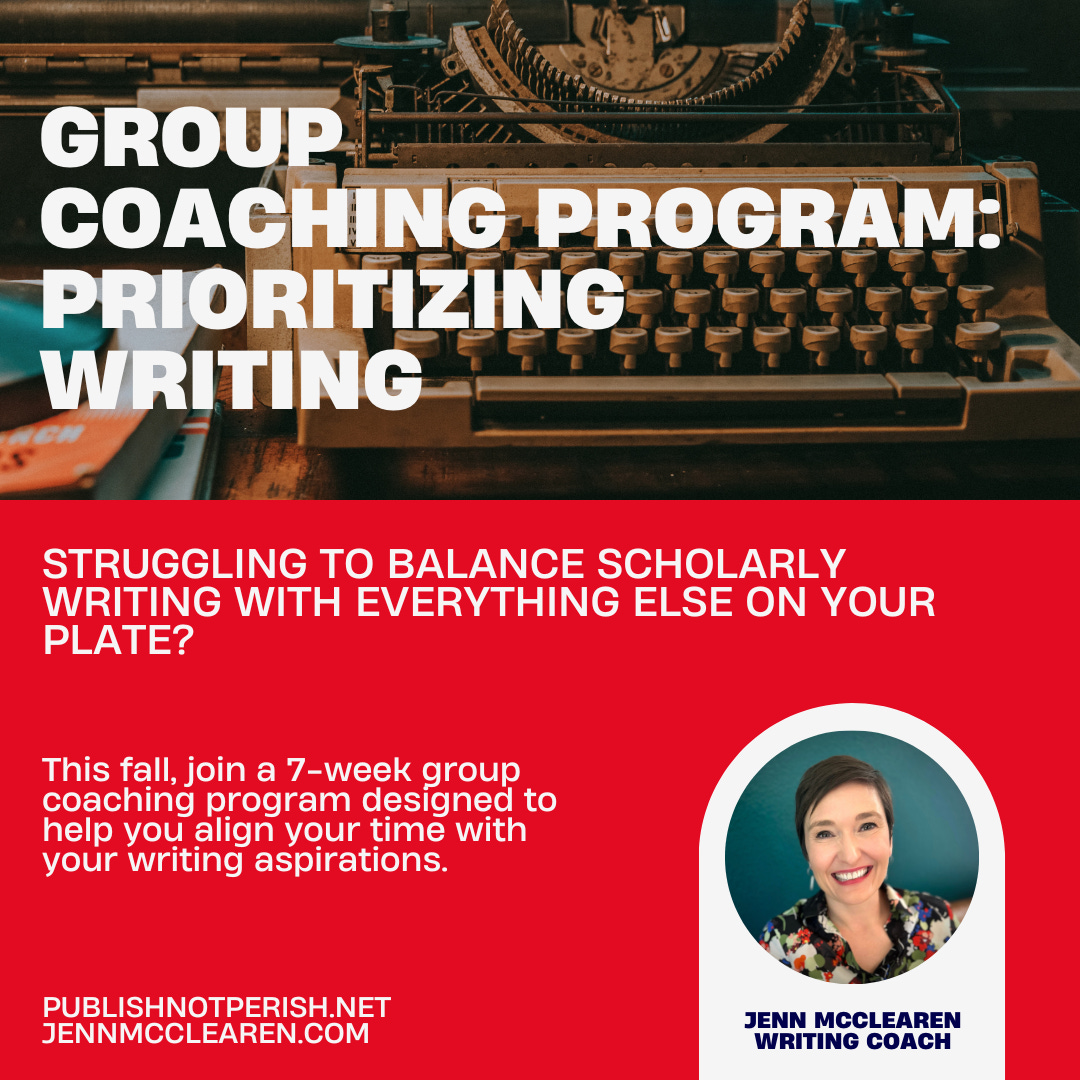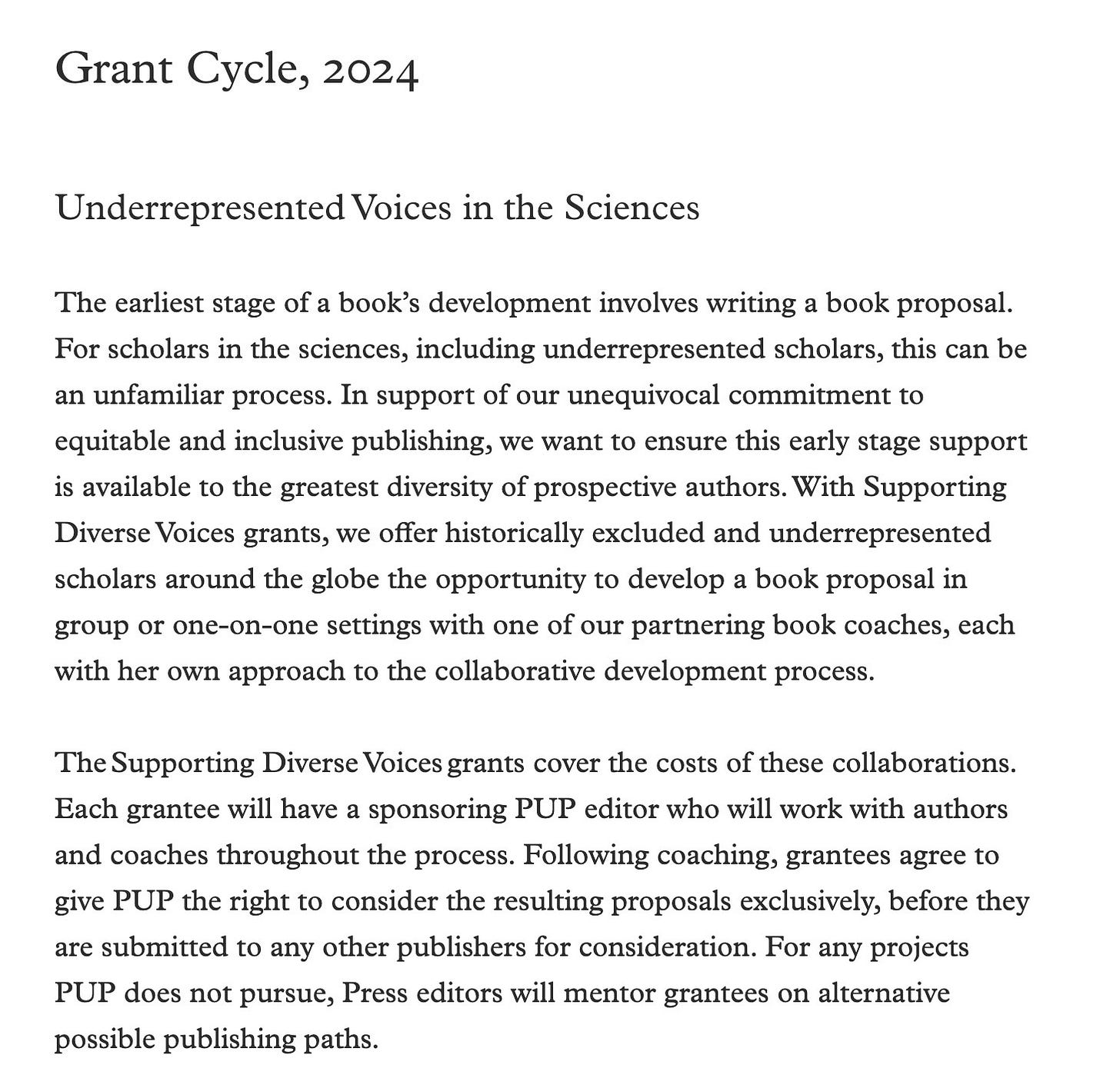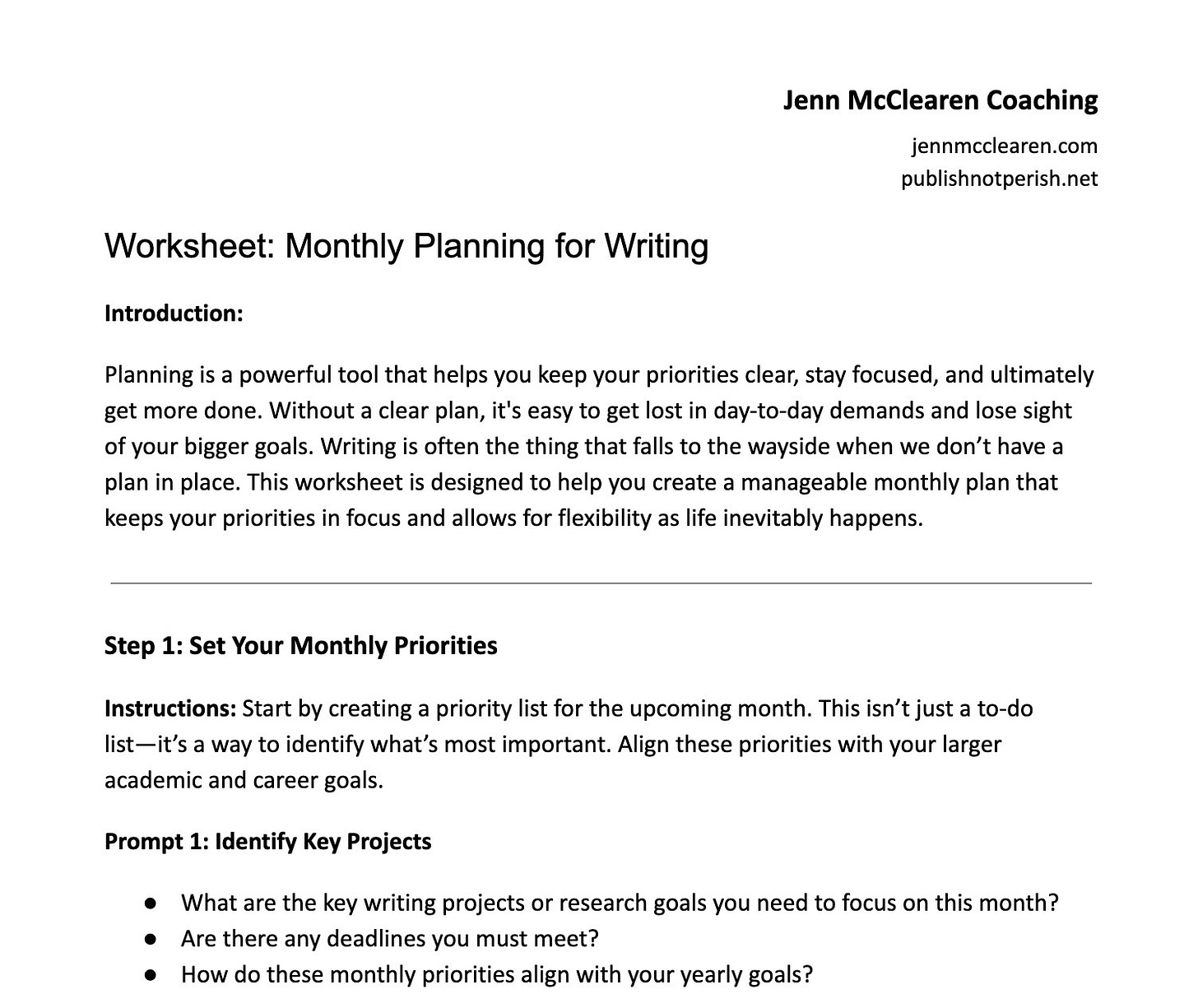August 2024 PNP Roundup
Last Month in Review
Greetings, dear readers! I hope your August is wrapping up nicely. Many of you have already started or are about to begin the fall 2024 term. This is the first time in about 14 years that I'm not heading back to school, and I know I'll miss the energy and excitement of a new academic year.
However, I'm thoroughly enjoying my new adventures in Europe. For now, that's a trade-off I’m willing to accept, even as I wax poetic about my former university life.






It’s time for the monthly PNP roundup! Here are some of my favorite media I’ve consumed over the past month on writing, productivity, and managing all the things. Some of this content is new, some of it is old, but all of it has kernels of wisdom for busy academic writers.
1. This month at PNP, I dedicated a series of newsletters to overcoming the challenges of writing when you're juggling multiple demands on your time. As a whole, these posts are meant to give you strategies to move into this fall semester more organized and clear about how you’ll prioritize writing:
I emphasize the importance of prioritizing your most important work and life commitments and then giving them prime real estate on your calendar. For this approach to be effective, it's crucial to learn how to spend less time and energy on less important tasks and to confidently say no to time-consuming opportunities that don’t align with your goals.
I understand that while prioritizing and saying no make logical sense, they’re often easier said than done. I also strongly believe that shifting your mindset to focus on your top priorities and deprioritizing less important tasks can help you accomplish more writing while also reducing stress and overwhelm.
2. Focusing on priorities and aligning them with your energy and schedule can be a challenging feat to implement. That’s why I’m offering a group coaching program to help you set clear priorities, manage your time effectively, and develop a consistent, sustainable writing practice!
Follow this link to find out more about the program:
3. I recently came across an article in the Chronicle from last year that offers advice to people planning to search for both academic and industry jobs in the coming year. The authors note that we have to take into account differences in timelines. They write,
It is, however, an exercise in timing. The faculty hiring process spans the length of an entire academic year, from August or September all the way through to March or April. The length of industry hiring processes varies wildly, but it is almost never that long. For that reason, we recommend focusing on your academic job search in the fall and your industry job search in the spring — with some overlap.
I think I still have some post-traumatic stress from being on the job market because, while I think the advice in this piece is sound, I can not help but viscerally feel the weight of the sheer amount of work this strategy necessitates.
Academic jobs might feel more familiar to most of us than industry positions, but the application process is still incredibly time-consuming. While industry jobs often require just an application and resume, figuring out which professions you want to pursue and understanding the conventions of those fields is also a lot of work, especially when you’re also working full-time or completing a dissertation. Applying for academic and industry jobs at the same time is A LOT, and I just want to acknowledge that.
If you decide to take a dual approach to job applications this year, my advice is to narrow your focus and apply very strategically, so you don’t overwhelm yourself with the weight of this process.
4. Attention, underrepresented scholars in the sciences who plan to write a book soon! Princeton University Press has just opened its book proposal development grant for the fall 2024 cycle. These grants allow you to collaborate with a book coach on your proposal, with the expectation that you will first submit it to Princeton to see if it is a good fit for them. The roster of coaches is stellar, so I highly recommend this opportunity if it is a good fit for you!
5. Do you have a revise and resubmit and aren’t quite sure where to start? This post contains a useful list of suggestions for organizing feedback, planning and carrying out revisions, and responding to reviewers.
I also write about my own process here:
6. Have you ever tried to create a semester plan for your writing but it never seems to work? You might try tackling your goals one month at a time instead. I created a worksheet to accompany the post, Making writing a priority through planning, to help with this process.
The worksheet can help you plan your writing and other priorities, even with a busy schedule of work and life!






